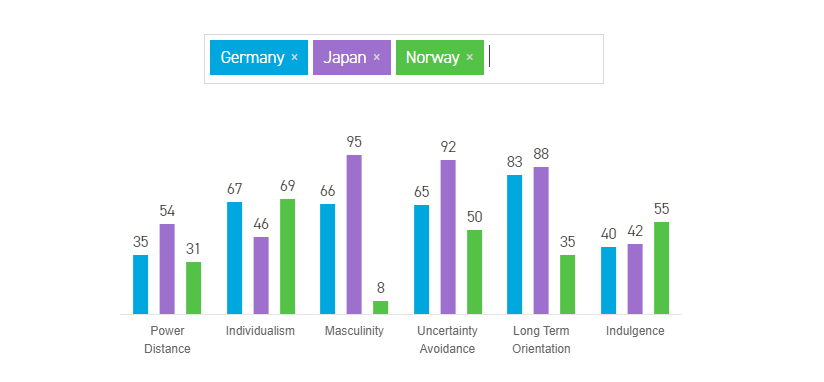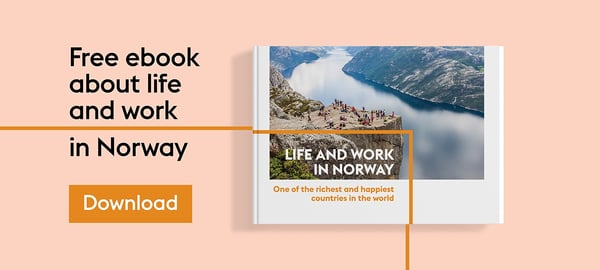One of the most popular reasons for moving to a new country is to expand your career opportunities. International work experiences help you stay relevant in our globalised world, you gain precious new skills and knowledge, and build a wider professional network.
As exciting as it is, moving abroad can also be challenging. After all, it requires adjusting to a whole new culture, to different communication styles, work practices, values and beliefs.
Just think about something as basic as time. Everyone agrees on what twelve o’clock means, but what ‘I’ll be a little late’ means for someone from Italy or someone from Switzerland can be quite different – although the two are neighbouring countries.
The differences in work-related cultural values across countries can vary, the bigger they are, the more time it takes to adapt to them.
If you want a change in your life (for example, escape a highly competitive environment) you’ll be glad to embrace the slower working pace of another country. If you got a good job offer abroad, but reluctant to leave your current work environment, you’ll be comforted to find the new one is similar.
Either way, taking the time to know and understand the cultural differences is crucial. It gives you a sense of how good-a-fit a certain country is to your lifestyle, how aligned it is with your personal wishes, values and goals.
.jpg?width=600&name=culture-at-work%20(1).jpg)
Hofstede’s 6 dimensions of culture help us understand the differences across countries
Dutch social psychologist Geert Hofstede developed a framework that provides an interesting insight into work cultures across the world and an excellent way to compare countries to each other. He initially identified four core dimensions of work-related cultural values
1. Power distance looks at how cultures view power, authority and hierarchy. To what extent are hierarchical structures and social inequalities accepted and respected?
2. Individualism vs. collectivism examines which interests have higher priority, those of the individual or those of the community. To what degree are people integrated into groups and how much are they willing to conform to their rules?
3. Masculinity vs. femininity looks at which values are the dominant ones; the stereotypically ‘masculine’ (aggressiveness, dominance, heroism), or the stereotypically ‘feminine’ (empathy, nurturing, emotional intelligence).
4. Uncertainty avoidance considers how a culture handles the uncertain and ambiguous characteristics of the future. Do they prefer sticking to the rules and predictable situations or do they embrace the ‘unexpected’ and accept dissenting ideas?
Later, two more dimensions were added:
5. Long-term vs. short-term orientation pertains to the degree to which a culture honours tradition and constancy.
6. Indulgence vs. restraint looks at to what extent a culture encourages people to be happy, to fulfil the desires related to having fun and enjoying life.
.jpg?width=600&name=culture-at-work%20(2).jpg)
| 'Life and Work in Norway' is an ebook that gives a first-hand account of life in the home country of Håmsø Patent & Trademark Attorneys. You’re welcome to download it at our website and explore how living and working in Norway would be like. |
In Scandinavia we work to live, not live to work
The Scandinavian countries are very similar and mainly characterised by low power dimension, high individualism and low masculinity. We don’t like to ‘do as we are told’, we value the ‘Self’ and our personal opinions, we encourage consensus and cooperation and we ‘work to live’, not ‘live to work’.
- Low power distance means we prefer informal and democratic work relationships. We strive towards social equality and promote collaboration between team members. Employees here expect (and have) control over their work schedules and assignments. In contrast, high power distance societies (e.g. France, China, most African and Latin countries) care more about social standings and take hierarchy for granted. There, the boss is the one who makes the final decision and the employees don’t argue around their assignments.
- As an individualistic society we believe self-expression is important. We like clear boundaries between our work and private lives. We don’t sugar-coat when giving feedback and we aren’t fans of nepotism. Contrary to collectivists, who are more careful about their words and actions and willing to sacrifice their personal interests for common benefits.
- Low masculinity holds particularly true for Norway and Sweden. In ‘feminine’ cultures like ours, liking what you do is more important than being the best at it. Both men and women care about ‘softer’ values like quality of life, care and nurturance. Getting extra time off or improved social benefits or work conditions are often favoured over materialistic rewards. Masculine cultures (Japan, Germany, Hungary, Switzerland) are on the other hand more performance-oriented. They are characterised by longer working hours, competitiveness and high pressure. People there prefer to be rewarded by money or titles and like to show off their status.
You can use the Hofstede Country Comparison tool to learn about the characteristics of your country and see how it compares with others. It will give you an idea of how working in a particular country would be like and prepare you for the challenges you might face.

Source: Hofstede Insights


